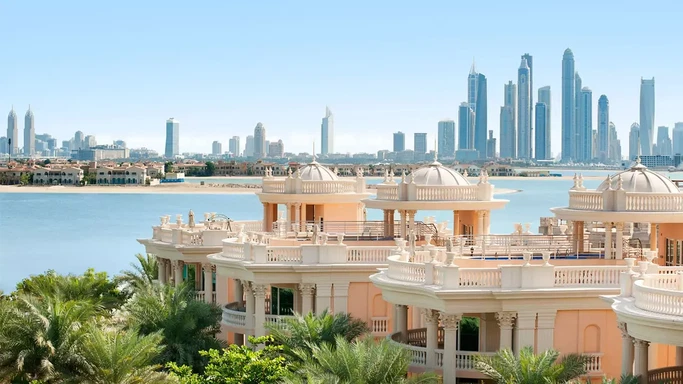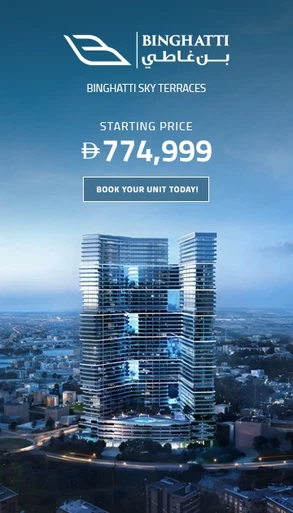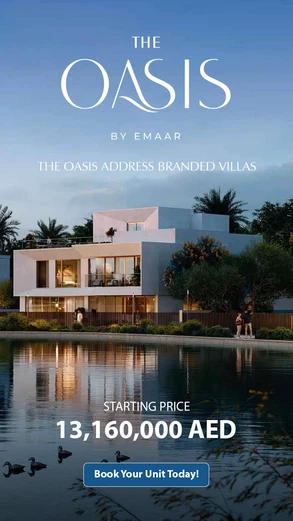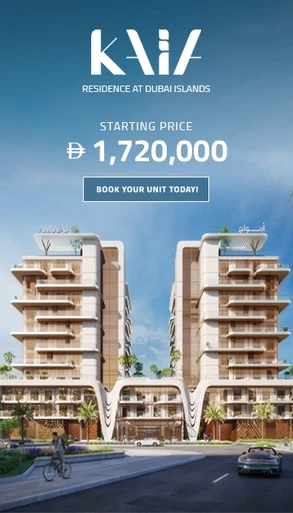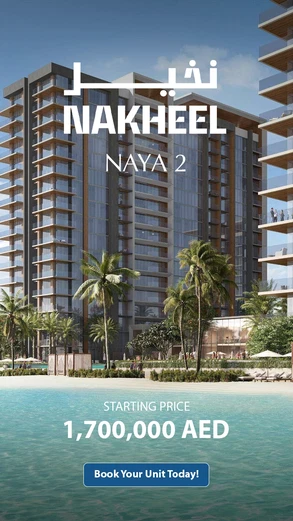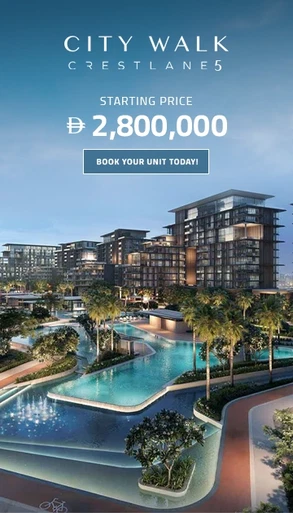Dubai is a staggering metropolis recognized for its extensive skylines, opulent lifestyle, and booming commercial environment. The city has also surfaced as a global hotspot and offers unique real estate opportunities: The Freehold Property. One of the top discussions of the city includes freehold properties in Dubai, the benefit of holding the ownership of freehold properties, and the procedure through which foreigners can buy freehold properties.
With a minimal investment of DH 750,000, individuals are now allowed to own freehold properties along with a 3-year visa. Get exposure to smart living by owning freehold properties offered by Dubai, which has more than 45 freehold areas and an extensive array of properties.
Dubai property market has entrenched its presence with 43.2K transactions globally, costing around AED 115 billion. This recorded data is the intimation to highlight the significance of investing in freehold properties in Dubai.
In addition, foreigners who were not allowed to hold any property in Dubai till 2002 were then allowed to hold properties in Dubai through a Property Law commenced in 2002 and allowed foreigners for "freehold property ownership."
However, the process of holding freehold property in Dubai is interminable. Hence, this guide includes exhaustive Information on how to buy a freehold property in Dubai, the nuances involved, and the steps through which the significant investment can come to life.
Understanding Dubai Freehold Property
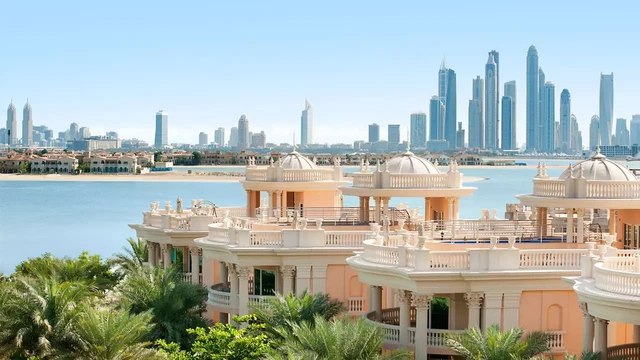
1. What is Freehold Property in Dubai?
Freehold property refers to real estate where the investor owns the property without any hold. This means that the whole property, the land where it stands, and the rights associated with the ownership will come under the complete possession of the owner. This policy was introduced in 2002 when the government of Dubai allowed foreign nationals to own properties but only in designated areas.
Owning the freehold property is beneficial because it is up to the owner whether he/she wants to lease the property, occupy it, or sell it further. This concept glaringly boosted Dubai real estate market and allured expatriates and investors from around the globe.
2. Basics of Freehold Property Purchase
Complete Ownership Rights: Owning freehold properties in Dubai gives ultimate control over the assets, allowing the buyers to make any changes within their purchased property.
In addition, the owners of freehold properties in Dubai have the complete freedom to sell, rent, or occupy the property without any limitations. This flexibility offers maximum autonomy; therefore, the property can be transferred to the family relatives or inherited if the owner dies.
Visa & Residency Opportunities: If you intend to stay for a long time in Dubai, owning freehold property has several advantages. For instance, if a buyer purchases a freehold property in a designated area, they might be offered a residency visa.
Long-Term Investment: Owning a freehold property in Dubai is a long-term investment that offers stability and security to the owners. Moreover, the higher appreciation of the property's value is an additional advancement for investors.
Capital Gains: The dynamic landscape of Dubai property market has potentially signified the potentiality for capital gains. Therefore, owning the freehold property in Dubai would be a rewarding journey for smart investors.
Rental Income Potential: Freehold property owners can capitalize on Dubai's lease market by renting out their properties, which can generate a potential stream of rental income.
Steps to Buy Freehold Property in Dubai
1. Research & Planning
Embracive research and planning are essential before involving yourself in the freehold market of Dubai. The predetermination of various factors such as budget, favored location, and kind of property (e.g., villa, flat, or townhouse) would be crucial to ponder before initiating your purchase.
May You Have Interest in
2. Engage a Real Estate Broker
Hiring a real estate agent will simplify the purchasing process and eventually assist you throughout the process. They are aware of market trends and can help you find the right property according to your demands and needs.
However, it is important to check whether the real estate agent is registered with the Real Estate Regulatory Authority (RERA) to avoid any potential fraud.
3. Legal and Financial Preparations
a. Mortgage Pre-Approval
Secure a pre-approval letter from the bank if you intend to finance your purchase via a mortgage. A pre-approval letter will help in navigating your borrowing capacity and streamline the purchasing procedure. Various banks in Dubai offer mortgage plans to expats, binding them within a timeframe of 10 to 25 years for payback.
b. Legal Documentation
Ensure the orderly availability of your legal documents. This typically includes;
- Passport copy
- Visa copy
- Emirates ID (If required)
- A pre-approval letter from your chosen bank that is providing you with our mortgage
- Proof of income such as salary certificate or income evidence

4. Property Search & Viewing
After managing your finance and legal documents, initiate your Property Search. Explore several properties to comprehend what befits you and your needs. For this purpose, it is required to consider the following factors;
Reputation of the Developer: Research the developers' credentials and check whether their past developments have been successful.
Location: It is crucial to choose a location that includes all essential amenities, like hospitals, schools, and public transport.
Community Facilities: Accessibility to parks, gyms, and swimming pools would be a perk to relish.
5. Making an Offer
Once you pick out a suitable property, develop an offer via your real estate agent. The finalizing of the price might go along with several negotiations. However, after finalizing each thing, from price to terms and conditions, ensure that your conditions are legally documented.
6. Signing the Memorandum of Understanding (MoU)
The successive step is to sign the Memorandum of Understanding (MoU). This Document entails rules and regulations of the sales while the signature takes place between the seller and the buyer. The subjects discussed in this document include;
- Details of the property
- Details about the buyer and the seller
- Payment plan
- Agreed price
- Date of transfer of ownership
This is the stage where the buyer will be required to pay a deposit, typically 10% of the property value.
7. Acquisition of No Objection Certificate (NOC)
In the seventh stage, the seller obtains a No Objection Certificate (NOC) from the developer. NOC declares that the seller has not attached any additional liabilities or service charges on selling the property.
The buyer usually endures the expense of acquiring the No Objection Certificate. Moreover, the cost of obtaining NOC can vary between AED 500 to AED 5000.
8. Sale Finalizing
Transfer of Ownership
The last stage is to transfer the ownership, which is generally supervised by the Dubai Land Department (DLD). This requires the presence of both parties (buyer and seller). In case of the absence of any party, the process can be continued through the authority representative of the absent party.
The process completion requires several documents;
- NOC from the Developer
- Original MoU
- Original Title Deed from the seller
- Visa and Passport copies of the buyer
- Payment receipt for the purchase
Payment of Fees
The specified fees associated with the transfer of ownership include;
DLD Transfer Fees: The buyer pays DLD transfer fees, usually 4% of the property value.
Mortgage Registration Fee: This fee is taken by the selected bank for a mortgage and typically applies to 0.25% of the loan amount.
Registration Trustee Fee: It depends on the value of the property but varies between AED 2,000 to AED 4,000.
9. Receiving the Title Deed
Once the transfer process is completed and the required fees are paid, the buyer will then receive an original title deed in his/her name. The title deed will officially enable your ownership over the freehold property purchased.
Potential Considerations When Buying Dubai Freehold Property
1. Legal Framework and Regulations
Due to the continual growth and dynamism in Dubai's real estate market, the Government of Dubai has imposed numerous stringent laws to protect both the sellers and buyers.
The Real Estate Regulatory Authority (RERA) supervises, organizes, and administers the whole property market to ensure fair practices and transparent management.
Various key laws involve;
- Law No. 7 (2006): On the subject of real estate property registration with DLD.
- Law No. 13 (2008): Regulating the Interim Real Estate Registration.
- Law No. 26 (2007): Concerning the Relationship Regulation between the tenants and landlords.
2. Taxes and Fees
Potential investors and buyers are numerously attracted to Dubai because of its tax-free environment. Nonetheless, the buyer should know the stipulated fees associated with the property process;
- DLD Fees: 4% of the property value.
- Mortgage Fees: This includes mortgage registration and processing fees.
- Service Charges: These are the annual charges imposed for property maintenance and community services.
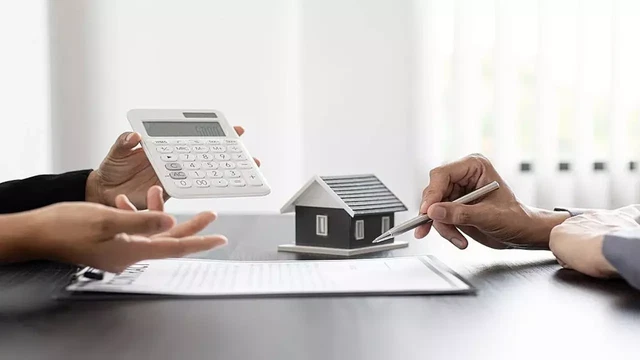
Types of Freehold Properties in Dubai
1. Commercial Freehold Property
Dubai offers numerous freehold commercial properties and developments, which include retail shops, office spaces, and warehouses.
Commercial freehold properties are an outstanding investment opportunity for businesses and entrepreneurs alike, offering them an ideal platform for developing their capitalization and upscaling profit-making.
2. Residential Freehold Property
There are designated freehold areas and developments in Dubai, offering investors an array of opulent, and starring villas, apartments, and townhouses.
This embracive list of residential freehold properties caters to diverse lifestyle preferences.
3. Mixed-Use Freehold Property
Well-known Developers in Dubai offer mixed-use freehold properties where commercial and residential units coexist.
Mixed-use freehold properties make a boastful preference for potential investors where convenient lifestyle and dynamism blend with the working environment.
Top Freehold Areas in Dubai
Check out a few of the top freehold areas in Dubai, which have many freehold units, each featuring a unique theme that lures investors to make potential purchases.
1. Culture Village
A waterfront development occupying 3.7M sq. m, Culture Village is a family-friendly area with various retail stores, commercial spaces, and shopping centers.
This area endures Islamic architecture and enriches the surroundings with a strong niche in arts, literary society, and museums. Manazek Al Khor and D1 Tower, Bridge, and Water View are a few of the freehold properties in Culture Village.
2. Discovery Gardens
Discovery Gardens is one of the serene and elegant places for residential purposes in Dubai. This community is eco-friendly, with ample lush green spaces and plants embracing your surroundings' tranquility.
Discovery Gardens is home to around 300 buildings, 200 retail stores, and 3 health centers, creating a thriving community for people seeking all the basic facilities nearby.
Building 85 of Mediterranean Apartments and Discover Garden Pavilions are a few of the freehold developments in Discovery Gardens.
3. DAMAC Hills
A perfect residential community with a standardized availability of perks and amenities such as huge parks, basketball and volleyball spaces, skating parks, and jogging tracks, Damac Hills area has always been a top choice for opulent investors.
In addition, the community is packed with various freeholder developments that attract buyers to establish their dream homes here. DAMAC Golf Gate and Pelham Akoya Park are a few of the top freehold developments in DAMAC Hills.
Closing In
Conclusively, investment in freehold areas in Dubai comes with more significant advantages for investors and buyers. Freehold Properties have enticed investors, making Dubai's real estate market more competitive and attractive.
However, if you intend to buy a freehold property in Dubai, you must undertake several steps to ensure efficient operation of the property purpose. This blog post is aimed to equip you with sufficient information on how to buy freehold property in Dubai, as the city is filled with plentiful investment opportunities.
Further, the intricate details and requisites of buying a freehold property in Dubai are also incorporated into the blog to ensure you a healthy investment experience. Dubai- a gateway to a dynamic lifestyle is further amplified by the rewarding experience of investment in Dubai's freehold market.
Owning a freehold property involves an abundance of benefits, such as no additional duties, complete ownership of the land, freedom to use it according to the needs, and the possibility of acquiring a residency visa.
Explore More About Dubai
